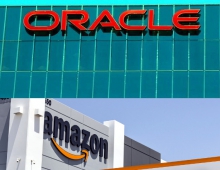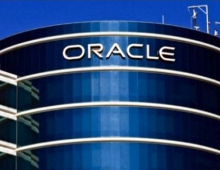
Oracle Stops Software Development For Intel Itanium Microprocessor
Oracle on Tuesday became the latest software maker to say it will stop developing software for Intel Itanium microprocessors, following a similar announcement by Microsoft last year and Red Hat the year before.
After conversations with Intel senior management, Oracle decided to discontinue all software development on the Intel Itanium microprocessor.
"Intel management made it clear that their strategic focus is on their x86 microprocessor and that Itanium was nearing the end of its life," Oracle said in a statement.
However, Intel seems to remain commited to its plans for the Itanium processor.
"Intel's work on Intel Itanium processors and platforms continues unabated with multiple generations of chips currently in development and on schedule," said Paul Otellini, president and CEO of Intel Corporation "We remain firmly committed to delivering a competitive, multi-generational roadmap for HP-UX and other operating system customers that run the Itanium architecture."
Intel added that Poulson is Intel's next generation 32nm 8 core based Itanium chip, which is on track to more than double the performance of the existing Tukwila architecture. Kittson is also an officially committed roadmap product for Itanium beyond Poulson and is also in active development, Intel added. The company plans to highlight Itanium processor developing plans at the upcoming Beijing Intel Developer's Forum held in China.
Oracle's announcement follows Microsoft's and RedHat's similar decisions to stop developing software for Itanium.
Hewlett-Packard is one of the major IT companies committed to Itanium-based servers. Oracle underlined that HP new CEO Leo Apotheker made no mention of Itanium in his recent presentation on the future strategic direction of HP. However, HP on Wednesday said that it will continue the development of Intel 's Itanium-based Integrity server platforms with its HP-UX operating system. The company added that decision to drop Itanium support isan anti-customer behaviour and an attempt to ensure success of Sun SPARC mission-critical servers.
"Oracle continues to show a pattern of anti-customer behavior as they move to shore up their failing Sun server business. HP believes in fair and honest competition. Competition is good for customers, innovation and the marketplace. We are shocked that Oracle would put enterprises and governments at risk while costing them hundreds of millions of dollars in lost productivity in a shameless gambit to limit fair competition," said Dave Donatelli, executive vice president and general manager of enterprise servers, storage and networking at HP.
Oracle added it will continue to provide support for existing customers of Oracle software that run on Itanium.
"Intel management made it clear that their strategic focus is on their x86 microprocessor and that Itanium was nearing the end of its life," Oracle said in a statement.
However, Intel seems to remain commited to its plans for the Itanium processor.
"Intel's work on Intel Itanium processors and platforms continues unabated with multiple generations of chips currently in development and on schedule," said Paul Otellini, president and CEO of Intel Corporation "We remain firmly committed to delivering a competitive, multi-generational roadmap for HP-UX and other operating system customers that run the Itanium architecture."
Intel added that Poulson is Intel's next generation 32nm 8 core based Itanium chip, which is on track to more than double the performance of the existing Tukwila architecture. Kittson is also an officially committed roadmap product for Itanium beyond Poulson and is also in active development, Intel added. The company plans to highlight Itanium processor developing plans at the upcoming Beijing Intel Developer's Forum held in China.
Oracle's announcement follows Microsoft's and RedHat's similar decisions to stop developing software for Itanium.
Hewlett-Packard is one of the major IT companies committed to Itanium-based servers. Oracle underlined that HP new CEO Leo Apotheker made no mention of Itanium in his recent presentation on the future strategic direction of HP. However, HP on Wednesday said that it will continue the development of Intel 's Itanium-based Integrity server platforms with its HP-UX operating system. The company added that decision to drop Itanium support isan anti-customer behaviour and an attempt to ensure success of Sun SPARC mission-critical servers.
"Oracle continues to show a pattern of anti-customer behavior as they move to shore up their failing Sun server business. HP believes in fair and honest competition. Competition is good for customers, innovation and the marketplace. We are shocked that Oracle would put enterprises and governments at risk while costing them hundreds of millions of dollars in lost productivity in a shameless gambit to limit fair competition," said Dave Donatelli, executive vice president and general manager of enterprise servers, storage and networking at HP.
Oracle added it will continue to provide support for existing customers of Oracle software that run on Itanium.





















